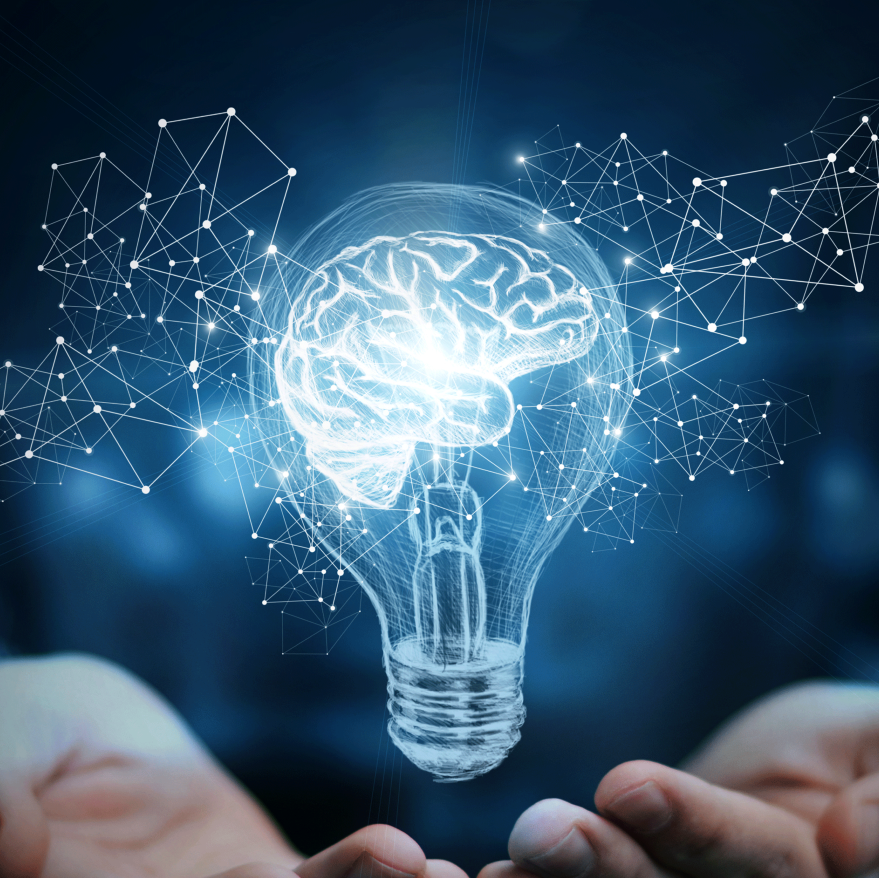If you search the internet for the definition of “intelligence”, you will find dozens of different theories, classifications and applications. The way researchers have defined the concept of intelligence has been modified many times since the birth of psychology, and the debate continues. So if there is no single definition, how is it measured and how do we know if we are intelligent? Despite the conflicting opinions, there is something in common among all of them: having intelligence is knowing how to make optimal use of what you have learned. Here we present several theories so you can see which one resonates most with you and draw your own conclusions.

Lucidity of reason
“Intelligence consists of a set of operations to manage information that results in positive, balanced and healthy behavior.” This is one of the definitions provided by Dr. Enrique Rojas, director of the Spanish Institute of Psychiatric Research in Madrid, Spain. For him, intelligence implies knowing how to use the instruments of reason effectively and productively. So, how smart you are depends on your own experience. In an article he published in The confidential, Dr. Rojas gives as examples a cardiologist and an ornithologist. Both have developed a great hearing ability to detect irregularities in the heart, in the case of the first, and to detect different types of birds in nature, in the case of the second. But he wouldn’t say one is smarter than the other. “Each one has displayed a very specific potential for discrimination. “That is a specific intelligence that specializes in a subject and observes and studies it in detail.” So, like almost everything in life, intelligence also depends on context.

Fluid And CrystallizedIntelligence
In the 1940s, British psychologist Raymond Cattell established the theory of general intelligence, which is made up of two subtypes of intelligence: fluid and crystallized. Crystallized intelligence is that developed by the knowledge, facts and skills accumulated throughout life and the ability to use them. For example, it is the ability to memorize vocabulary, remember dates, use devices and technology, perform household, work and educational tasks, etc. This type of intelligence is not only “trained” (reading various information, living experiences, working on self-knowledge, etc.), but is also influenced by external factors, such as socioeconomic and educational level. Fluid intelligence, for its part, is what allows you to adapt to any unforeseen situation. For example, you took an unknown route home and got lost, but you kept going and found the correct route. That information will now remain in your memory and can be used by your crystallized intelligence. As you see, both intelligences work intertwined, and for Cattell, your ability to use them and adapt is what will define how intelligent you are.

Triarchic theory
For the American psychologist Robert Strenberg, there are not two, but three types of intelligence. He introduces us to practical intelligence, or what many of us colloquially know as “street wisdom.” It means that, based on your experiences, you are able to apply your knowledge to solve problems in your daily life. For example, you’re cooking and hot oil catches fire, and you quickly remember to smother it with the lid of the pan, not pour water on it. Second is analytical intelligence, which is your ability to analyze, evaluate and contrast. It is what you use when, for example, you must analyze the historical context of a book for your Literature class. Finally, we have creative intelligence, which is used to invent a solution to a problem or create something new. Strenberg says that most people have one of these three types most developed.

Multiple intelligences
This is, perhaps, one of the most widespread and accepted theories. It is what explains to us, for example, why some children are excellent at drawing and bad at mathematics, or vice versa, and why many times the traditional educational system does not work for everyone. The theory of multiple intelligences was developed by the American psychologist Howard Gardner. According to him, each person has eight types of intelligence, but develops some more than others. Gardner talks about linguistic intelligence, that which people have who, for example, learn new languages easily; mathematical intelligence, characterized by the ability to see numerical patterns and use reason and logic; musical intelligence, which understands rhythm and tones; bodily kinesthetic intelligence, which has a high capacity to control movements and perform physical tasks; special intelligence, which has a high perception of the relationship between objects; interpersonal intelligence, which understands and is sensitive to the emotional states of others; intrapersonal intelligence, which can understand your own feelings and motivations and use them to achieve your goals; and naturalistic intelligence, which has a high capacity to appreciate the natural world and interact with its species.

Can it be measured?
Now that we have taken a look at the most widespread theories (because there are many others, in case you want to continue investigating), is it possible to measure a person’s level of intelligence? You may immediately think of generalized tests, such as the IQ test. This test was developed at the beginning of the 20th century by French psychologist Alfred Binet with the goal of determining which children were most likely to succeed in school. Over the years, the test was adapted and is now used to measure the IQ of children and adults alike. The controversy with this test, and with many others, in fact, is that a person’s intelligence can change over the years, or with the situations they face, and even depending on the type they have, as Strenberg and Gardner indicated. Additionally, many of these tests also take speed into consideration. If two people answer a question correctly, but one did it in less time, the test gives a higher score. Now, perhaps at that moment the person who took the longest was distracted. Would this be an accurate result? Everything is relative.
